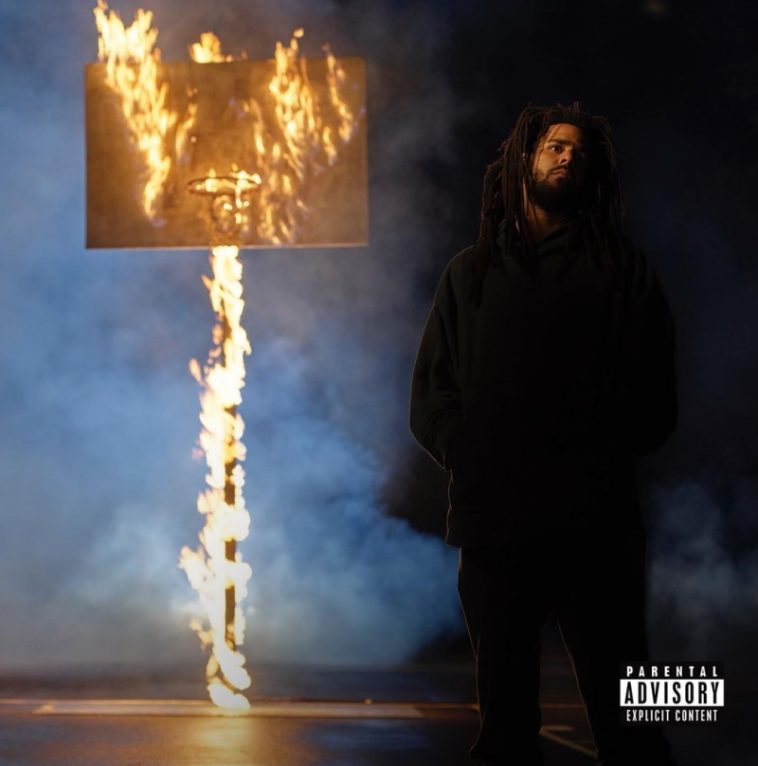The Off-Season Album Review
J. Cole releases his long awaited 6th studio album
May 21, 2021
Overall rating: 4/5
Rapper Jermaine, known on stage as J. Cole, released his sixth full-length studio album, “The Off-Season,” on May 14th after a long absence. His last album, “KOD”, was released 3 years ago, leaving eager fans in anticipation after the release of what many felt was a subpar album.
“I was definitely excited for this release,” junior Tyler Lee said. “I’ve been waiting for a long time for some new music from Jermaine.”
Offering more of a classic rap feel, Cole provides a taste breaker from the trap and mumble rap that dominates the scene today. Yet even while dipping into the nostalgic feel of lyrical rap, he still keeps the production sleek and modern. For those that prefer one-liners and clever bars over catchy hooks, the album is a refreshing taste.
The album opens with “95.south,” a strong start to the project that incorporates a loud, trumpeting beat filled with witty one-liners. Cole brags about his success and money, rapping that he “could put an M right on your head, you Luigi brother now.”
On “pride.is.the.devil”, Cole raps about how he feared for his life growing up, and acted tougher than he actually was because of his inflated pride. The track offers eye opening insight into Cole’s life growing up in poverty. A surprise feature from Lil Baby gives the song an added boost of flavor, and ties it together into one of the better songs on the release.
On “amari” listeners get a feel for Cole’s pen game, littered with bars like “want smoke?… I’m a whole…nicotine company.”
However, “amari” is one of the pieces that feels like a long, unstructured freestyle rather than a song. Although the lyrics are high-quality, the lack of a hook leaves the listener with no desire to come back to it in the future.
The best song by far is “let.go.my.hand,” an introspective and thought-provoking piece where Cole reflects on his past life and how he hopes his son will be safe and become his own man through the process of growing up.
Cole’s tone is laid back and calm, the voice of someone older, wiser, and completely at peace with himself and his situation. However, the lyrics contrast this tone, with Cole looking back at how his childhood was plagued with a constant fear of dying.
In “let.go.my.hand”, he sings, “I had a fear of gettin’ punched while everybody eyein’, add to that a constant fear of dyin’, by gunshot wound, the other violent type of endings.”
Cole’s lyrical ability is unquestionable, and he shows his skill on each and every song on this album. One big feature lacking from this otherwise pristine project is a good hook. He focuses all his energy on making the best lyrics and snappy production, but in that process hooks get thrown out the window. Perhaps this could be a good thing, as every other rap song nowadays is defined by earworm-inducing beats and shallow lyrics, but it still leaves something to be desired.
If listened to from start to finish, the album begins to blend together into one giant mash of J. Cole, but if listened to sporadically, the deeper meaning of the lyrics can sink in and be appreciated. To fully appreciate the album, listeners should experience it in chunks, not all at once. This is a project that should be easy to return to once in a while, to break up the sickly sweet sound of TikTok pop and trap common in the mainstream.
This project offers a peek into the ongoing Cole saga, if you will, with more and much better records to be expected in the future. He hasn’t hit a creative block, but he needs to dig deeper or take more risks in order to come out with a stronger album. Improvement on the hooks, and a single hit song are the only things holding “The Off-Season” back from greatness.
Just know this was years in the making.
My new album The Off-Season available everywhere 5/14 pic.twitter.com/aBw4po8fvx
— J. Cole (@JColeNC) May 4, 2021


